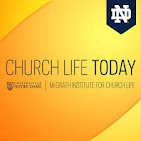A Poem by Mary Oliver: "Mysteries, Yes" Truly we live with mysteries too marvelous, to be understood/ How grass can be nourishing in the / mouth of lambs./ How rivers and stones are forever / in allegiance with gravity / while we ourselves dream of rising./ How two hands touch and the bonds will / never be broken. How people come, from delight or the scars of damage, / to the comfort of a poem./ Let me keep my distance, always from those / who think they have the answers. Let me keep company always with those who say / "Look!" and laugh in astonishment, /and bow their heads. Questions: By taking a risk and going deeper into something (e.g relationship) what was the reward? What part of our faith as Catholic still confuses you and are unsure about? How has God worked to get you here and now?

Comments
Post a Comment